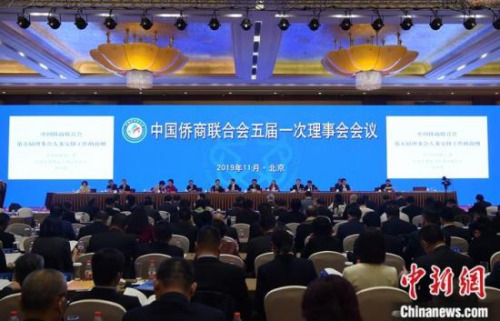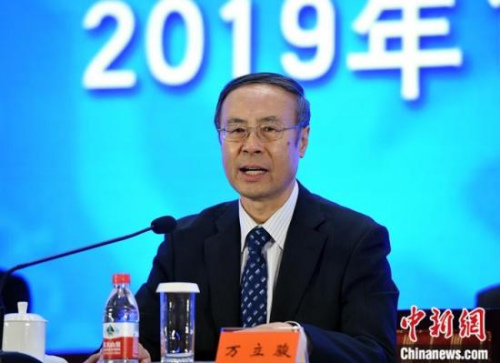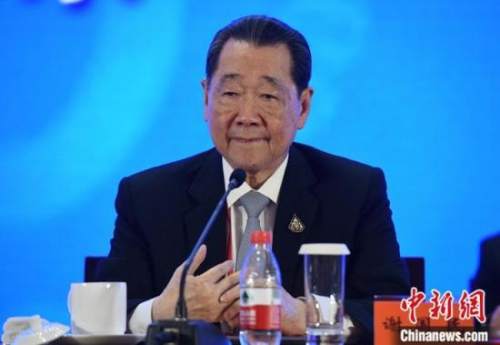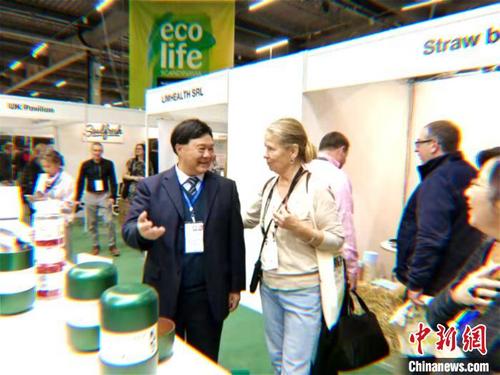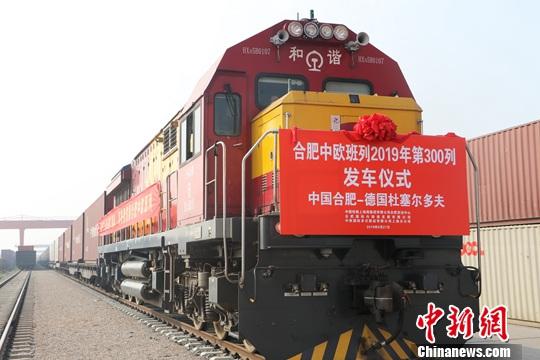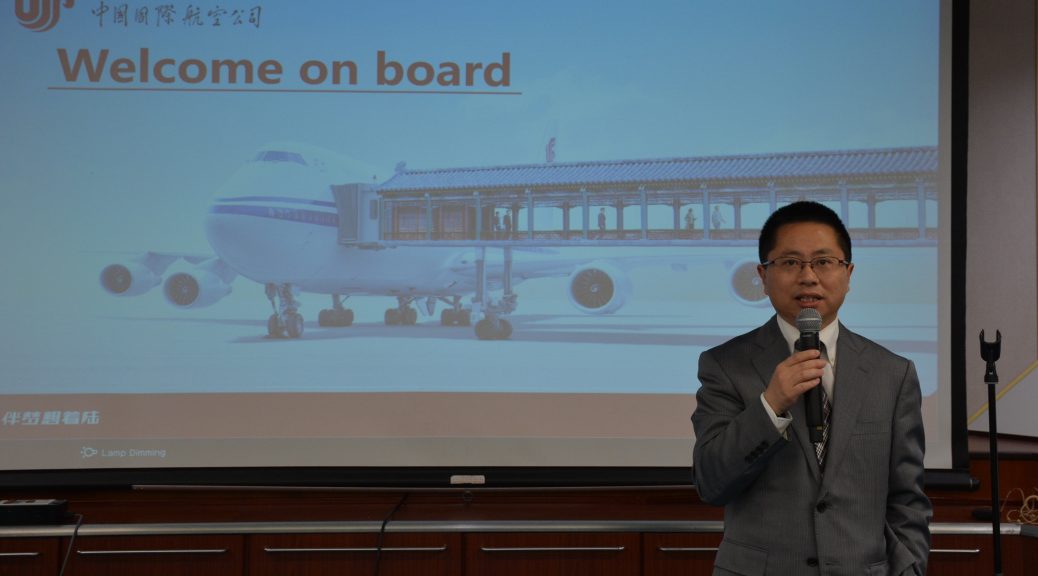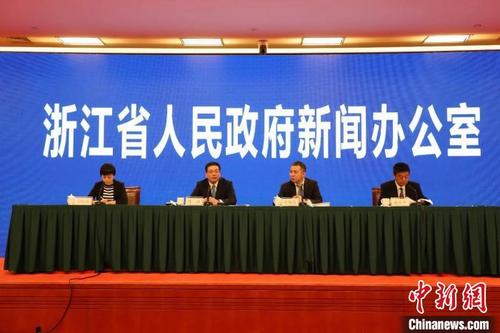By Xuefei Chen Axelsson
STOCKHOLM, Nov. 14(Greenpost)– Swedish Prime Minister Stephan Löfven made a statement on his government’s EU policy last Wednesday. The following is the whole text.
Last Saturday, it was exactly thirty years
since the fall of the Berlin Wall.
The Iron Curtain and the Cold War gave way and instead increased cooperation flourished in Europe.
Historic cooperation.
And today, twenty-five years ago,
Swedes went to polling stations throughout the country in a referendum on EU membership.
Ahead of that referendum, Sweden was alive with debate.
Stickers on coat lapels and car bumpers declared either
“Yes to Europe” or “No to the EU”.
Our identity as Europeans was not always self-evident to everyone.
Sweden had managed to stay out of the wars that had plagued the rest of Europe.
Perhaps we saw ourselves more as Skåningar,
Stockholmers or Swedes,
than as continental Europeans.
At the same time,
the EU was a unique peace project that made countries stronger through exchange and trade.
And Mr/Madam Speaker, twenty-five years ago today, a majority voted for Sweden to join the European Union.
It is therefore particularly appropriate today – for the first time – to have the opportunity to present the Statement of Government EU Policy.
I want to present the Government’s views on the European Union
and present the five most important priorities for the coming years.
The political debate about the EU is no longer about yes or no, for or against.
Now we are discussing the substantive issues,
societal problems and Sweden’s role in the Union.
And even if we hold different views about these things,
one thing is clear:
- A cohesive EU is our best asset in an uncertain world.
- An open EU is Sweden’s best tool for more jobs and economic growth.
- And a united EU is the best guarantor for peace.
***
Mr/Madam Speaker,
Membership of the European Union is a cornerstone for Sweden.
It is crucial to our economy, our security and our voice in the world.
Sweden is an export country, and more than 70 percent of all the goods we export – paper, cars, electronics – go to other countries in Europe.
Today, Sweden has strong influence in the EU, our voice is heard and our actions have significance.
But sometimes it has also seemed that Sweden has been in two minds about EU cooperation.
That it has not always served our interests.
Our ability to influence the EU’s decisions, direction and development is of fundamental importance to protecting our national interests.
Sweden’s point of departure must be that we participate fully in EU cooperation and are active in shaping all of its parts in a way that protects Swedish interests.
Sweden must be proactive on the issues we prioritise.
What does this mean?
It means that other countries in the EU must know that they can count on Sweden.
We can choose to opt out of some things, such as the euro. That decision remains in place.
But as a general rule, Sweden will use our opportunities to influence the EU,
quite simply because it is a
fundamental national interest.
We take every opportunity to improve the Union.
This is why the Government wants Sweden to:
- Join the European Public Prosecutor’s Office.
- Continue to engage in the enhanced defence cooperation.
- Do more in the EU to fight crime, and why we will consider membership of the banking union.
We in Sweden always try to gain traction for our ideas and create new alliances, but at the same time we know that cooperation requires compromise.
Because the alternative to cooperation is introversion and nationalism, the ultimate consequences of which we can see in Europe’s graveyards.
***
Mr/Madam Speaker,
To improve cooperation,
the Government considers that the five most important issues for the EU in coming years are:
- Democracy and the rule of law.
- The climate.
- Jobs.
- Migration.
- Security.
I would like to begin with the very basis of all our work in the Union.
All Member States have agreed on a few fundamental values, including:
equality, democracy, the rule of law.
After the fall of the Berlin Wall, Europe was a continent of optimism.
There was a feeling that freedom and democracy could not be stopped.
Today, the situation is different.
In some Member States, the independence of the judicial system, the media and universities is under threat.
This harms the entire Union.
Even if countries can hold different views on issues and need to compromise, we must all respect the fundamental values that EU cooperation is built on.
Because the history of our continent shows what can happen when we turn a blind eye to violations of democratic rights and freedoms.
But also because the entire EU project would otherwise become watered down.
Trust between countries would be undermined, investments would be lost, trade would fall and jobs put at risk.
Sweden will never compromise on
equality, democracy and the rule of law.
It is the EU’s responsibility to ensure that the rest of Europe is not tempted to do so either.
***
Mr/Madam Speaker,
Leading the climate transition is an enormous opportunity for Europe.
No person, company or country can manage the transition by themselves. It is as simple as that.
Here we need the EU’s forte: cooperation.
The EU must lead the transition.
Not only because it is our duty to our children, but also to strengthen our countries.
When our Member States lead the transition,
with innovation and research,
our companies have the climate-smart solutions that the whole world is looking for.
- This improves the exporting countries’ economies,
- creates environmental benefits in the importing countries,
- means more jobs in Europe,
- more money for welfare systems,
- and strengthens the EU’s position
when we show that a just climate transition is possible.
Herein lies the opportunity.
A climate transition now will contribute to more jobs and stronger welfare today and in the future.
- Sweden will therefore push for a climate act at EU level. We will also work for a sharpening of the other climate legislation and for a larger share of the EU budget to go to the climate transition.
- The EU’s goals for reduced emissions by 2030 must be sharpened so that ambitions are in line with the Paris Agreement’s 1.5-degree target.
- And the EU must achieve net zero emissions by 2050.
The EU must take the opportunity to lead the transition, for the simple reason that we the people, our companies and the climate benefit from it.
***
Mr/Madam Speaker,
Men’s and women’s lives and working conditions must be improved through the EU.
One way is by helping to create more jobs.
To make this possible
in a time of increasingly tough global competition,
the EU needs a modern and sustainable industrial policy that
is based on trade and the single market, rather than protectionism.
But the EU should not only have more jobs, we must also have decent jobs.
If you are working in Sweden, Swedish rules must be followed.
It is as simple as that.
Wage dumping and unfair competition must end.
I am proud of the success Sweden has achieved for decent jobs.
And now we are continuing.
- The principles of the European Pillar of Social Rights must be upheld, and Sweden will continue to lead the work for a more secure labour market.
- The Government will work for zero tolerance in the EU of fatal accidents at work.
We want to see legislation banning carcinogenic substances in working life. - Our Nordic labour market model must be protected.
It is the best in the world.
So now that an initiative on minimum wages is under discussion at EU level, the Nordic model must be respected.
With a modern industrial sector, more jobs with decent conditions and a strong Nordic model, we will have an EU that really does improve people’s everyday lives.
***
Mr/Madam Speaker,
During the refugee crisis in 2015, one thing became clear:
migration must become a shared responsibility of EU Member States.
The EU has not managed this.
There have been several attempts to reach a deal on refugee policy, but little significant progress has been made.
This is deeply unsatisfactory.
In the end, everyone will have to compromise, but we must work broadly:
- Beyond the EU’s borders, by contributing to peace and development so that fewer people are forced to try to come to Europe via dangerous routes.
- At the EU’s borders, to smash the ruthless smuggling of human beings, save lives and have control at the borders.
- And within the EU’s borders, to achieve a more even distribution of those people who under the right of asylum have grounds to stay. If any Member State refuses to take their responsibility, it must come at a price.
Only through shared responsibility can the EU find a way forward.
***
Mr/Madam Speaker,
In Sweden, criminality is fought with the full force of society. But today’s organised crime knows no boundaries.
According to the assessment of the Swedish Police, international burglary rings account for more than half of all domestic burglaries.
And weapons that are smuggled into the Union are used in shootings in Swedish cities.
The Government will therefore take new steps to enhance EU cooperation against international crime and terrorism. We will participate where we can.
- The Government wants to strengthen the European police and judicial cooperation: Europol och Eurojust.
We must improve cooperation on police intelligence, evidence collection and preliminary investigations. - EU legislation on explosives needs to be sharpened.
- And security at the EU’s external borders needs to be increased. Biometric verification will allow us to know who is crossing.
This is how we will achieve a safer Union, a safer Sweden.
***
But, the EU must also contribute to a safer world outside the Union.
When anti-democratic forces flex their muscles,
the EU is needed as a strong voice for peace, democracy and human rights.
There are some good examples, such as the sanctions against Russia, the Eastern Partnership and the measures against pirates around the Horn of Africa. But all too often, the EU’s voice is missing in world affairs.
We should be able to do better. The fact that cooperation on foreign affairs is based on consensus can be a strength, but in practice it can also be a hindrance. One example is that the EU sometimes fails to produce joint statements on human rights in global forums such as the UN because one or more countries choose to block them.
We should therefore look at the possibility of moving from requiring unanimity to taking qualified majority decisions in certain foreign policy areas – notwithstanding every country’s right to decide its own security policy line – with the aim of strengthening the EU’s voice in these areas. This concerns issues involving human rights and international conflicts.
***
The United Kingdom is now in the process of leaving the Union.
At the same time, other countries want to join.
There is concern that we are moving forward too fast, that the EU is not ready to accept more members.
A lot has happened since the last enlargement and we must take this into account.
At the same time, we have good reason to enhance cooperation with our neighbouring countries. If the EU does not have a presence, other powers will fill the void.
Here, the possibility of eventually becoming a member is important.
The Government supports the idea of a review of the entire enlargement process.
The process for membership negotiations must be strict.
All criteria that have been set must be fully met and continue to be followed once a country has been accepted as a member.
Everyone should be assured of this.
This is how we will build a stronger Union.
***
Mr/Madam Speaker,
Many of us remember that November day twenty-five years ago,
when we said yes to European cooperation.
But there are also many who do not know Sweden as anything other than a member of the EU.
Who learned about our referendum in their history lessons at school,
studied abroad thanks to the Erasmus scheme or have been seasonal workers in another country
and perhaps see themselves as…well…Europeans.
Sweden said yes twenty-five years ago.
And we can see the power of EU cooperation today.
We have already gone from war and conflicts to peace and cohesion.
This is something to be proud of.
And the EU has improved people’s lives.
Membership has strengthened our countries.
When the EU decides something, we set a standard for the rest of the world, such as in the work against dangerous chemicals.
But we must now take the next step.
Lead the climate transition.
Continue the peace efforts.
Strengthen the cooperation.
And above all
Sweden must continue to cooperate in the EU
to improve the realities that people face,
people’s lives,
both here at home
and in the rest of Europe.
Thank you.



